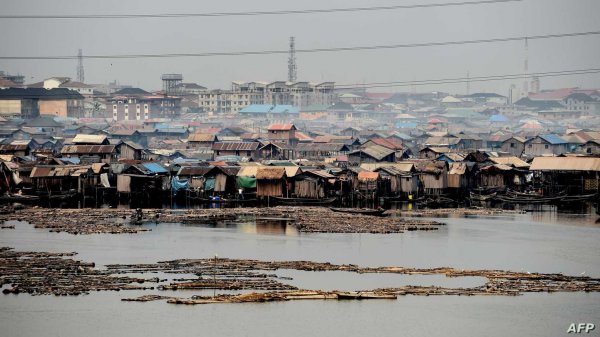In this COVID-19 pandemic, emerging popular refrains like ‘we’re all in this together’ echo across media. But who is this ‘we’? While it’s true that the entire globe is being affected, health risks, burdens, experiences and outcomes aren’t the same for everyone.
The outbreak has prompted calls to better understand its differential impacts, especially for women. Yet, simply prioritising women and building in a sex-and-gender focus won’t paint the full picture of COVID-19’s impact or provide us with enough information to fully address it.

Urbanisation is one of several factors contributing to the complexity of the COVID crisis
In addition to gender, there are other critical factors such as age, geography, disability, race, ethnicity and indigeneity, migration or refugee status and class. We need to think about conditions such as precarious housing, employment, and political and environmental stressors.
Such complexity requires us to take an intersectional approach to understanding the disease, it’s health and economic impacts and post-pandemic planning.
Intersecting factors are embedded in sociopolitical processes and power structures that create disparate risks and exposures for different people.
This is because risk factors do not operate in isolation. Different factors intersect in different ways to shape experiences of COVID-19. These processes and structures include globalisation, capitalism urbanisation, climate change, patriarchy, racism and xenophobia.
When approaching COVID-19 from this angle, we can see that governments and relevant authorities should employ much more nuanced strategies to gathering, contextualising and interpreting data.
For example, data collection should not be limited to sex disaggregated data. Biological explanations need to be integrated with other social factors, including but not limited to gender norms, roles and behaviours. Burden of disease is not only gendered, but rather, overlaid with other factors, such as age, health status, disability, occupation, socioeconomic status, migratory status and geographic location.
This means that data must be generated from diverse sources – governments, practitioners, civil society – in order to yield a true, global picture of the pandemic. Governments and research councils should prioritise partnerships with researchers in academic and third-sector institutions get a clearer picture of national and regional patterns of the disease, including the documentation different lived experiences, health needs and interactions and include the voices of those affected.

Burden of disease is not only gendered but overlaid with other factors.
In reporting the effects of pandemics, we must consider broader contexts. Social forces, including socioeconomic and political environments, governance, policy, and cultural and societal values and norms, influence a person’s social location within their household, community and the wider health system.
Moreover, pandemic responses at the national and international levels and related budget support plans must go beyond gender to include expertise in human rights and an analysis of factors such as disability, age, race/ethnicity, migration status, socioeconomic status, and geography.
Indeed, calls for the extension of amnesty provisions to include migrants should be supported. Special protection measures are also required to respond to increased care-giving, violence and decreased access to sexual and reproductive health services considering how differently positioned women experience discrimination, domestic violence and access to various services and social supports.
Indeed, all policy responses need to be cross-sectoral in order to engage with the complexity of an intersectional approach. Special attention must be paid to ensuring that policies are coordinated with the aim of attaining the highest possible level of healthcare as a human right. Relevant sectors include education, social protection, housing, labour and legal services.
Decision makers must also move beyond a deficit model. They should emphasise resourcefulness, resilience, agency and strength.
Decision makers must also move beyond a deficit model. They should emphasise resourcefulness, resilience, agency and strength and in so doing also, commit to leadership diversity.
To date, policy making has been dominated by white, Christian, cis-gendered, heterosexual, able-bodied wealthy men. In reversing that trend, and by making national and international policy spaces truly representative, participation of women and people from minority caste, religious, and ethnic backgrounds could positively impact the health of millions in the future.




